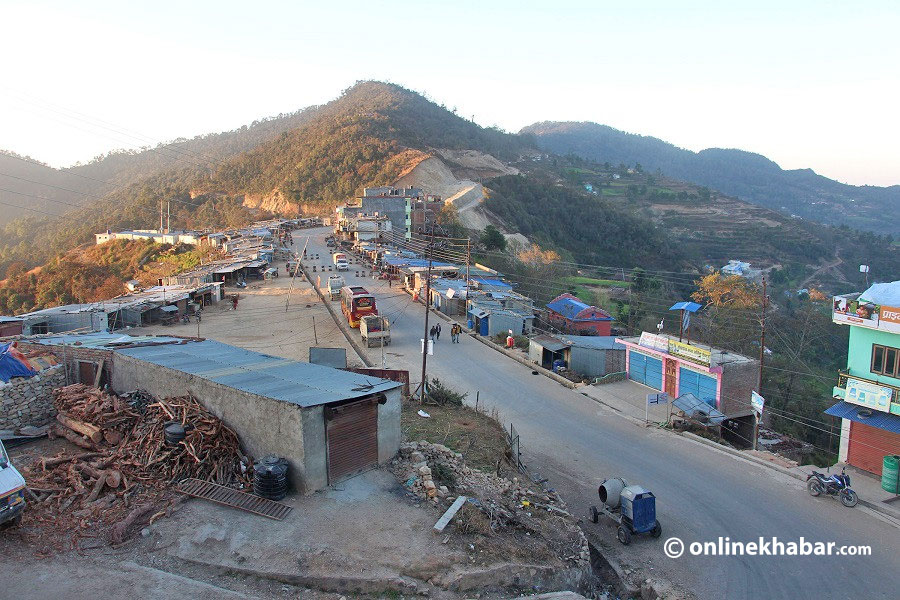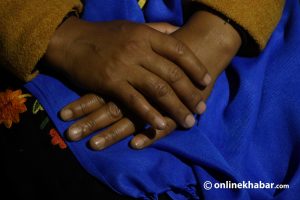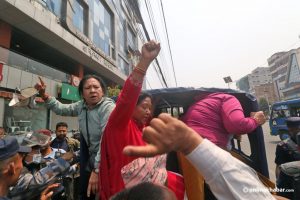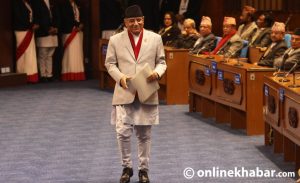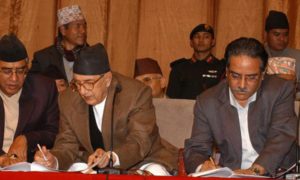Rolpa was once an eventful place during the 10 years of the civil war in Nepal. But, the people of Holeri in the district suffered immensely. After 2001, Holeri was targeted by the government forces that had become a Maoist stronghold. To describe the atrocities from that time might be difficult, but among many of the victims is Bhairav BK.
“The Maoists used to visit house to house for food and shelter. They would take us to their programmes. Meanwhile, when the army came to the village, they would beat us for colluding with the Maoists.”
Bhairav’s wife Tulasi lost her husband in 2003 after he was captured and killed by the then Royal Nepal Army at Holeri Bazaar. As compensation, Tulasi has received Rs one million in instalments over the years.
However, the money has not made any difference. She has not been able to build a house in Runtigadhi rural municipality-6 where she resides. “When the breadwinner is killed, you are only left with suffering for the rest of your lives.”
Though it has been 15 years since the civil war is over, the people of Holeri are not relieved nor have the families of those killed or disappeared have been helped. So are the stories from other similar places.
The grief of Jailbang

Jailbang in Rolpa bore the most brunt of the humanitarian losses during the 10-year civil war. At least 73 people were killed, including 63 from the government side and 10 from the rebels. There is no house in Jailbang where people were not shot or killed and where they did not experience beatings from security forces and insurgents for ‘spying’.
Ram Lal BK of Thulo village, Jailbang, was beaten mercilessly by security forces at his home for hiding Maoists during the civil war. “There are very few people in our country who have not been tortured by the army. People are still on medicine for the old wounds that cannot be described in words.”
Even though Jailbang lost most villagers, it still does not have a memorial for the martyrs, Ram Lal says. “The blood we shed changed the country, but our sufferings did not change. How can you call it development?”
Meanwhile, the village saw the civil war and nothing else, says 70-year-old Birsa BK, who lost her daughter in the encounter between the army and the Maoists.
The wounds of Thabang

Rolpa’s Thabang has a similar story from the civil war. The government forces entered the village in March 2001. As a Maoist base area, military operations were carried out time and again. Meanwhile, villagers witnessed unforgivable crimes like murders and rapes.
The security forces set 19 houses on fire in Thabang while villagers hid in the forest to see their houses burning. “Our hearts burned along with the house that night,” one of them says, adding they spent many months in the jungle after that.”
But, like Holeri, Thabang also has no one who has tried to ease their pain of the civil war.
The killings in Mahat village

During the civil war, there were frequent clashes happening between the rebels and security forces in the Mahat village of Rukum. The village was the point where both forces would come and go as pleased and it had turned the village into a battlefield.
The day of September 2, 2002, was particularly unforgettable, says villager Kamal Thapa. “The army went from house to house and shot dead 17 villagers, including children and the disabled,” he says.
Before that, in 1999, the army had killed four people including two women in the same village. In Mahat, 58 people including 52 from the army and six from the Maoists also lost their lives during the conflict.
The 75-year-old Junsara Sunar has spent 18 years onwards crying over the memory of her deceased son, Chandra Bahadur. “I cannot ever forget. The army took him to the jungle and shot him. I have not been able to dare to go to that place.”
The locals say there has been no change in the village since the civil war to ease their pain. Even the Rs 30 million allocated for the model peace village programme did not make a difference. People who survived like Junsara Sunar are forced to live in tears.
The Gurans village of Salyan also suffered a lot during the civil war. On June 12, 2002, 62 houses were set on fire in the village when clashes occurred between the army and the Maoists. Some 35 houses were turned into ashes and 19 people lost their lives.
“There are no vehicles, no electricity whereas the leaders talked about providing employment to the survivors, teaching them skills, and making them self-reliant, but in the end, nothing happened,” shares Pokharaj Yogi of Guranse.



